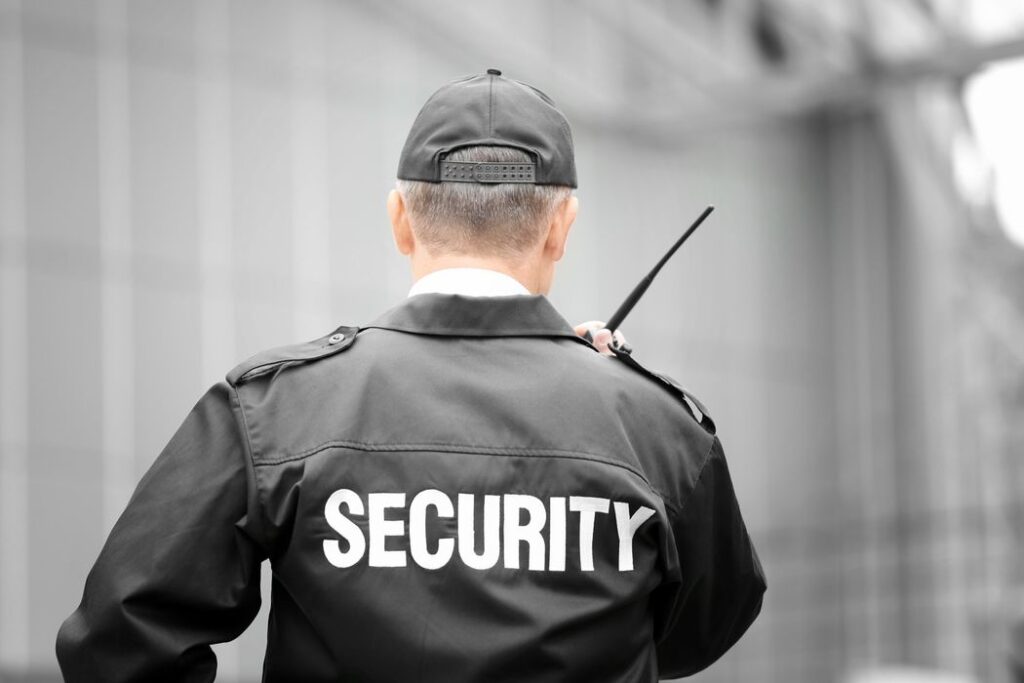Preliminary discussions with clients offer many strategic advantages for setting up a long-term security contract – and nailing down specifics of service. But while these meetings are always a smart idea, we wanted to focus on one subject that security guard firms should bring up every time: Use of force.
This may not be on the client’s agenda, but it should certainly be on yours. Here’s why security guard companies need to bring the subject up and discuss the details when creating a plan with a new client.
Use of Force Laws Can Be Surprisingly Vague for Security Guards
If you haven’t yet seen it, we recommend reading this report out of California about use of force regulations – or lack thereof. States can indeed set their own use of force regulations (sometimes laws, sometimes general guidelines) for security guards, which are typically enforced by state bureaus or similar organizations. But many times, there’s not a lot of thought that goes into these laws, leaving them vague and unhelpful. In California, how security guards should act when force is needed is left to the discretion of the employer and what’s legal for the average citizen to do – with a remonstration to not use more force “than that which the law allows.”
Obviously, this isn’t any help to a guard out on patrol. While these laws are being examined and improved over time, it’s still important to sit down with new clients and talk about their expectations for use of force, affirm that security guards don’t have any special privileges beyond the average citizen, and discuss what state laws have to say.
It’s Always Important to Avoid Excessive Force
It’s obvious, but worth saying! Without many clear guidelines, it’s important that security guard firms maintain a focus on avoiding excessive force while instead de-escalating situations. Clients need to hear this too, because many organizations looking for new security guard contracts are worried about what could happen if things get out of hand. They want to protect their properties, reputations, and brand – while avoiding any potential legal or insurance issues.
This creates a space where security companies need to step in and assure clients that 1) they are well-versed in use of force laws and 2) their guards are well-trained to handle situations in appropriate ways.
Clients Should Have Input on How Guards Should Respond to Situations
As the California law mentioned above says, the “employer” of the security guards is an active participant in deciding how guards respond. This is why use of force is an important subject – it’s connected to where guards are posted, what guards are trying to protect, and what specific situations that clients want to avoid (in 2020 pandemic conditions, this also extends to controlling customer behavior for many companies that never needed to think about this before).
Clients Should Have a Plan if Someone is Detained on Their Property
It may not always be likely, but you need to talk about what your guards will do if someone does need to be detained. Key points to consider are:
- Assuring the client that protecting their property is the focus
- Explaining when local law enforcement would be called in
- Explaining how guards are trained to deal with a problem without creating damage or newsworthy ruckus
- Explaining how guards will avoid situations that could lead to lawsuits
- If the client should temporarily shut down or evacuate
The Firm should Have as Much Time as Possible to Arrange for Qualified Guards
Clients may also have specific needs for use of force, depending on the job. It’s important to find this out early – sometimes businesses aren’t exactly sure what sort of guards they want, so this may require some discussion. This also gives your company time to schedule guards with the proper training, certifications, and tools for what the client expects.
Discussion Will Help Mitigate Liability Issues
We have covered this more in-depth in past guides, but liability can be a serious issue for security guards and companies when use of force is involved. This is especially true if there is any chance of an accidental death or shooting – but even minor incidents can be disastrous for both the client and the security firm. In addition to lawsuits and official investigations, firms could face losing their licensing, steep fines, or other legal repercussions if guards make mistakes in use of force.
Fortunately, a robust and ongoing training strategy can greatly reduce these risks. Don’t hesitate to explain your approach to training and hiring practices, especially if the client has heard bad stories in the past.
Final Note: There is Always a Chance that Incidents Will Be Investigated
Even when guards follow protocol perfectly and no laws are broken, an incident involving use of force is always open for investigation by state bureaus that oversee security guard companies – especially if a complaint is made. If this happens, both the client hiring your firm and your guards should be prepared. Communication, training, and documentation are all key!






